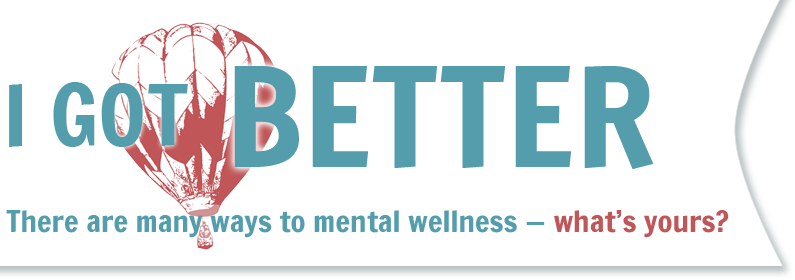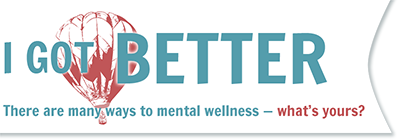To Make My Life Feel Worth Living
By Kerry
During your mental health care, have you often felt hopeless about your chance of getting better?
Failing at being a “good patient” (on time for appointments, remembering appointments, remembering to keep up with changing med routines) supported all my ideas about being broken. Counseling was like the clinician had a checklist of other tasks I was “failing” at (sleep habits, task completion, how many panic attacks, diet).
In what ways have you found psychiatric medication(s) harmful?
Harsh side effects undermined my capacity to understand the role I could play in my recovery and perpetuated the idea that there is something “wrong” with me. Was there a turning point for you? Please describe: I got fed up. I decided to do whatever it took to make my life feel worth living. I stopped hanging out with friends, unless it was to cook a healthy meal or engage in a fitness activity. I stopped attending family events, unless I had gotten enough sleep and met a few of my own personal goals for the day first. I stopped spending money, and [started] saving everything I could. I took two weeks off from work to just think and form a plan. My plan involved quitting my job, getting rid of most [of my] material possessions, saying goodbye to loved ones, and taking my life on the road for a year to complete some goals of things I’ve always wanted but have been too afraid to go after. I’ve never looked back and I’ve never felt so stable for so long.
Tell us what recovery means to you.
Recovery is when you take your mind back, when you become the expert on your mind & body. [This is] when you learn to look at your mind & body as the manifestations of what you need to know to feel okay in existing. When you learn the signs in your body, [such as] that when you feel hungry & anxious it means you are dehydrated, and that when you feel you have so much energy that you could remodel a house overnight, it means you haven’t spent enough energy today and you need to run. [Recovery means] that feelings of highs, lows, and anxiety are always going to come back, and it’s your job to stop and listen and figure out what is the real unmet need. There’s always something. Recovery is knowing that your brain will make errors and it’s your job to pick them out as best you can, not to freak out.
If you could send a brief message to someone receiving mental health care today who is feeling hopeless about getting better, what would you say?
Take a deep breath & forgive yourself for ever suspecting that you could be broken. There’s no such thing…I made that mistake once too. Come back to us, stand with us, we are never broken. You belong. Can you give examples showing you have gotten better from a mental or emotional problem, such as how you are doing well or accomplishing goals you have chosen? At night, when I go to sleep, I do not struggle. I no longer wonder how to make it through the night. Everyday, when I wake up, I’m glad to have another day. To feel joy in being alive is the greatest achievement of my life. Hard times will come again, but nobody, nothing, can strip me of my faith or of joy.

